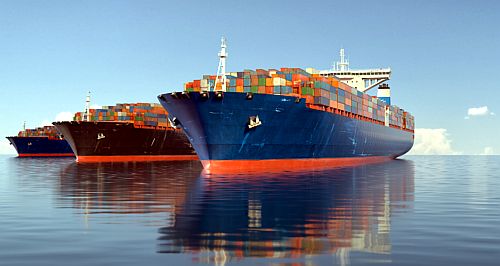Make / Model Search
News - General News - PortsHouthi attacks to delay Euro-sourced vehiclesRed Sea risk likely to worsen delays and freight costs for European-sourced vehicles29 Jan 2024 By MATT BROGAN RECENT shipping attacks carried out by Iran-backed Houthi rebels in the Red Sea are forcing major carriers on a 6500km detour via South Africa’s Cape of Good Hope, delaying goods and driving up freight costs.
Included in the itinerary are European-sourced cars – which accounted for 11.8 per cent of all vehicles sold in Australia during 2023 – and crude oil transported by some of the world’s largest carriers.
As the attacks – sparked by the Israel-Hamas conflict – on one of the world’s busiest shipping lanes intensify, the potential impact on seaborne trade is beginning to concern industry analysts.
International shipping experts say carriers are anticipating the announcement of suspension of passage via the Red Sea “at any time”, with several already making the decision to take up the option of the longer – but safer – route via South Africa.
Unfortunately, the safer option adds significantly to freight costs, compounding the current slow state of progress through the drought-stricken Panama Canal that gives ships a shortcut through Central America.
German shipping analysts Container xChange say the anticipated cost trajectory of seaborne freight is surging to historic highs – exceeding those during blockage of the Suez Canal by the Ever Given and through the COVID-19 pandemic.
It says that the duration of the conflict will “play a vital role” in determining the impact of shipping costs but warns the price of sea freight could rise by up to 10 times pre-pandemic levels by as early as this time next year.
There is also the very real danger of the conflict exerting upward pressure on fuel prices as shipping – and fuel use for shipping – is factored in.
Adding to the increased fuel consumption required to take the detour around Africa is what experts estimate is a 10 per cent hike in heavy fuel oil (HFO) costs, expected to add to the woes of importers dependent on seaborne freight.
In the energy sector, BP, TORM, and Shell have already made the decision to bypass the region, with Chevron holding tight for now.
Some analysts say the conflict poses “a significant threat to the uninterrupted flow of oil”, and that any escalation in tensions will lead to costly disruptions in supply, potentially returning prices at the pump back to above $2.20 per litre (adjusted).
Further, there is already market speculation that oil prices could rise by between $US10 and $US20 per barrel (the current price sits at $US80.33/barrel), adding considerably to the per-tonne cost of land, sea, and air freight.
Since November, Houthi rebels have been focusing their attacks on ships passing through the strait of Bal al-Mandab, a 32km channel which divides Africa and Yemen on the Arabian Peninsula. The passage sees an estimated 12 per cent of the world’s freight through every year.
Initially focused on ships owned or operated by Israeli companies, or facilitating trade with Israel but now seemingly targeting random vessels, the attacks include those perpetrated on the car carrier Galaxy Leader which was stormed by Houthi rebels in late November.
Ascending from a helicopter and armed with machine guns, the attackers videoed the hijacking for public dissemination while taking 25 crew members hostage.  Read more21st of March 2023  Dockside delays continue to impact deliveriesExtra biosecurity screening wreaks havoc on dealership wait times, business futures26th of September 2022  Shipping and logistics woes continueRecord shipping costs are adding to supply chain pressures for automotive manufacturers |
Click to shareGeneral News articlesResearch General News Motor industry news |











Facebook Twitter Instagram